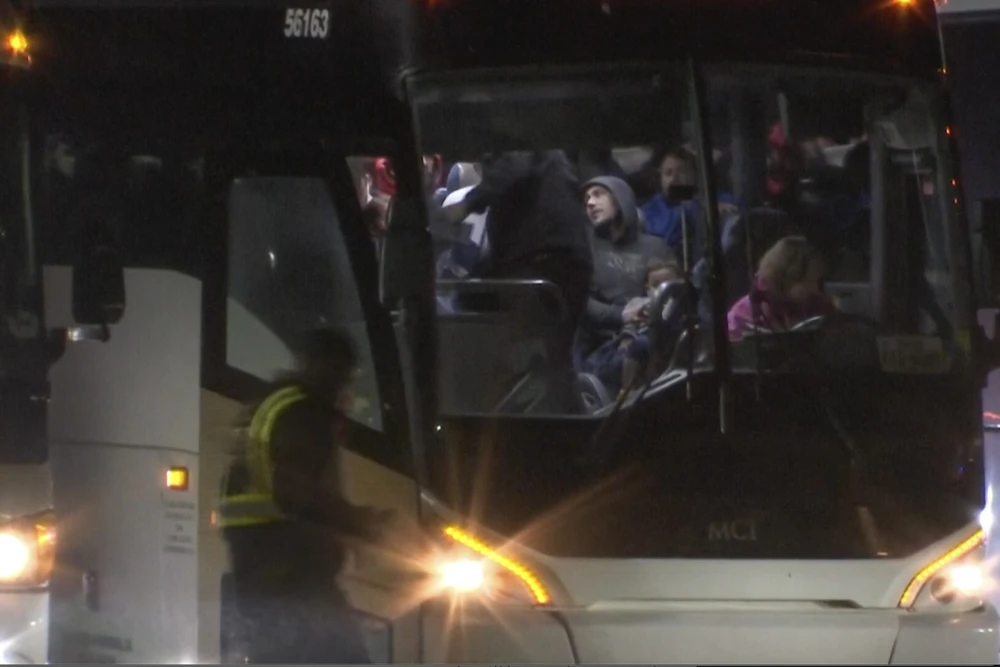The recent surge in arrivals of migrants from the southern border has sparked a wave of responses and reactions from officials in various cities and states across the United States.
The situation has prompted a complex and multifaceted discourse, encompassing issues such as immigration policy, local governance, and the broader social and economic implications of the influx.
In Edison, New Jersey, the mayor’s warning to send people back to the border if they arrived in buses reflects the growing tensions and anxieties surrounding the arrival of migrants.
Similarly, in Rockford, Illinois, authorities made it clear that the 355 migrants who landed on a charter flight would not be staying. These instances illustrate the localized responses to the broader national issue of immigration.
The presence of signs along Interstate 55 in Grundy County, Illinois, explicitly stating “NO MIGRANT BUSES THIS EXIT” highlights the extent to which the arrival of migrants has become a point of contention and concern for local communities.
These developments are indicative of the broader challenges and complexities associated with managing the influx of migrants, particularly in areas that may not have been traditionally equipped to handle such large-scale arrivals.
The decision by officials in suburbs and outlying cities near Chicago and New York to give migrants a cold shoulder reflects a broader trend of resistance and apprehension in response to efforts led by Texas Republican Governor Greg Abbott to pay for migrants to leave his state.
This dynamic underscores the interconnectedness of local, state, and national responses to the issue of immigration, with divergent approaches and perspectives shaping the overall discourse and policy landscape.
The suburban backlash against the influx of migrants is occurring within the context of what the acting commissioner of U.S. Customs and Border Protection has described as “unprecedented” arrivals, with illegal entries surpassing 10,000 on several days last month.
This influx has placed significant strain on existing resources and infrastructure, prompting a range of responses and calls for assistance from local and state officials.
The pleas from big-city Democratic mayors, such as Eric Adams of New York and Brandon Johnson of Chicago, for help from the Biden administration in addressing the influx underscore the need for coordinated and comprehensive approaches to immigration policy and management.
The situation highlights the complexities and challenges associated with addressing the root causes of migration, as well as the need for collaborative and multilateral efforts to address the broader implications of the influx.
In conclusion, the arrival of migrants from the southern border has sparked a diverse array of responses and reactions from officials at various levels of government.
The localized, state-level, and national dynamics at play in this issue underscore the multifaceted nature of immigration policy and the broader social, economic, and political implications of the influx.
As the situation continues to unfold, it is imperative to foster dialogue, collaboration, and proactive measures to address the challenges and opportunities associated with immigration in a comprehensive and equitable manner.
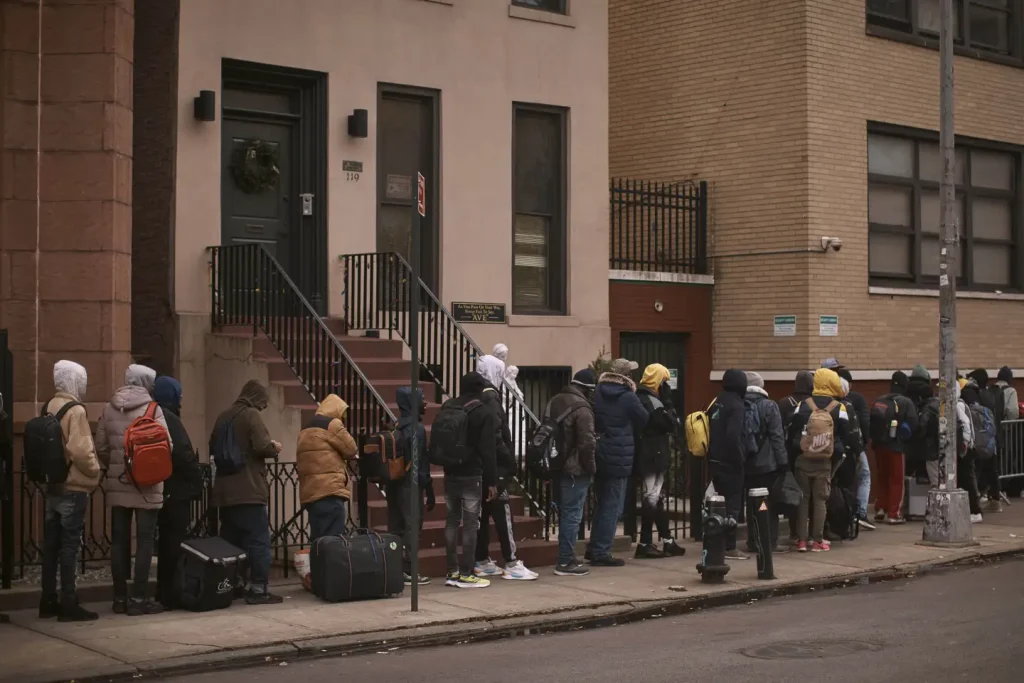
This response to the influx of migrants from the southern border is indicative of the broader challenges and complexities associated with managing immigration on a national scale.
The localized, state-level, and national dynamics at play in this issue underscore the multifaceted nature of immigration policy and the broader social, economic, and political implications of the influx.
As the situation continues to unfold, it is imperative to foster dialogue, collaboration, and proactive measures to address the challenges and opportunities associated with immigration in a comprehensive and equitable manner.
The issue of migrant transportation and its impact on various cities across the United States has sparked intense debate and raised significant questions about the responsibilities of local and state authorities, as well as the ethical considerations surrounding immigration policies.
In recent years, Texas Governor Greg Abbott has drawn attention for his administration’s decision to transport a large number of migrants to Democratic-led cities, triggering a series of reactions from local officials and communities.
This essay aims to delve into the multifaceted aspects of this complex situation, exploring the legal, logistical, and humanitarian dimensions involved.
Since 2022, Governor Abbott’s administration has orchestrated the transportation of over 80,000 migrants from Texas to Democratic-led cities, a move that has ignited controversy and led to a series of legal and regulatory responses from the affected cities.
Notably, the use of buses and, more recently, charter planes to facilitate the transfer of migrants has raised concerns and prompted reactions from cities such as Chicago and New York.
The imposition of fines and the adoption of regulations by some suburbs reflect the growing tensions and challenges arising from this situation
The arrival of migrants in cities such as Chicago has prompted local officials to respond with a range of measures, including the chartering of buses and the adoption of ordinances aimed at regulating and controlling the influx of migrants.
The reactions of municipalities, such as Tinley Park and Broadview, underscore the complexities and dilemmas faced by local authorities in managing the arrival of migrants, particularly in the absence of coordinated plans and resources to address the associated challenges.
Furthermore, the statements from mayors such as Reed Gusciora and Sam Joshi shed light on the limitations and concerns of local governments in accommodating migrants, highlighting the need for comprehensive and collaborative approaches to address the issue
The actions and statements of Governor Abbott, as well as the responses from mayors and officials in affected cities, have reignited debates on governance, immigration policies, and ethical responsibilities.
The divergent perspectives on the issue, including concerns about capacity, resources, and the welfare of migrants, underscore the ethical and humanitarian dimensions of this complex situation.
Moreover, the evolving stance of New Jersey Governor Phil Murphy and the discussions surrounding the concept of a “sanctuary state” reflect the broader societal and political implications of migrant transportation and the need for nuanced and inclusive policy frameworks
The transportation of migrants from Texas to Democratic-led cities has emerged as a contentious and multifaceted issue, raising fundamental questions about governance, legal responsibilities, and ethical considerations.
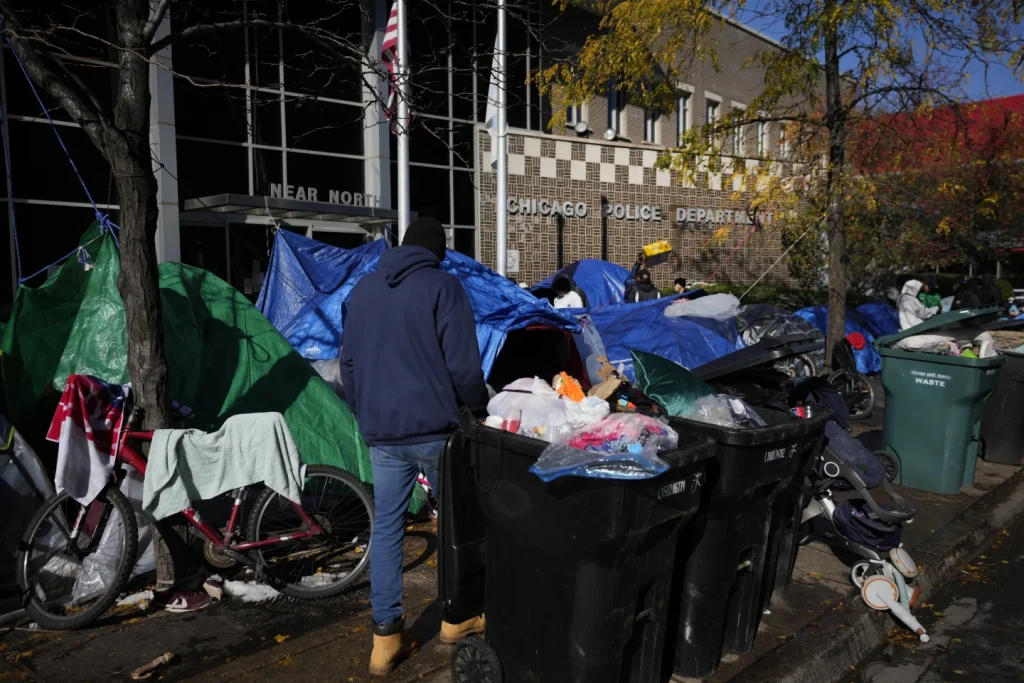
The responses from local officials, the regulatory measures adopted by municipalities, and the evolving positions of state governors underscore the intricate dynamics at play and the imperative of comprehensive and empathetic approaches to address the challenges posed by migrant transportation.
As this issue continues to unfold, it is essential for stakeholders at all levels to engage in constructive dialogue and collaborative efforts to navigate the complexities and uphold the values of compassion, fairness, and solidarity in addressing the needs of migrants and the communities they impact
In conclusion, the transportation of migrants from Texas to Democratic-led cities has sparked a range of responses and raised profound questions about governance, legal responsibilities, and ethical considerations.
The complexities and dilemmas faced by local authorities, the evolving positions of state governors, and the broader societal and political implications underscore the imperative of comprehensive and empathetic approaches to address the challenges posed by migrant transportation.
As this issue continues to unfold, it is essential for stakeholders at all levels to engage in constructive dialogue and collaborative efforts to navigate the complexities and uphold the values of compassion, fairness, and solidarity in addressing the needs of migrants and the communities they impact.
The recent actions and statements made by Governor Abbott have sparked significant controversy and concern, prompting strong reactions from various individuals and officials.
The situation, as reported by multiple sources, underscores the complex and pressing issues surrounding immigration, border security, and the welfare of migrants.
The remarks made by Adams and Johnson, as well as the defense put forth by Governor Abbott, have ignited a heated debate regarding the appropriate response to the ongoing challenges at the border.
The decision to transport individuals, particularly at night and without prior notice, has been met with criticism and accusations of intentionally causing chaos.
This has raised questions about the ethical implications and humanitarian considerations of such tactics.
Furthermore, the statements made by Abbott’s spokesperson, Renae Eze, have further fueled the contentious discourse.
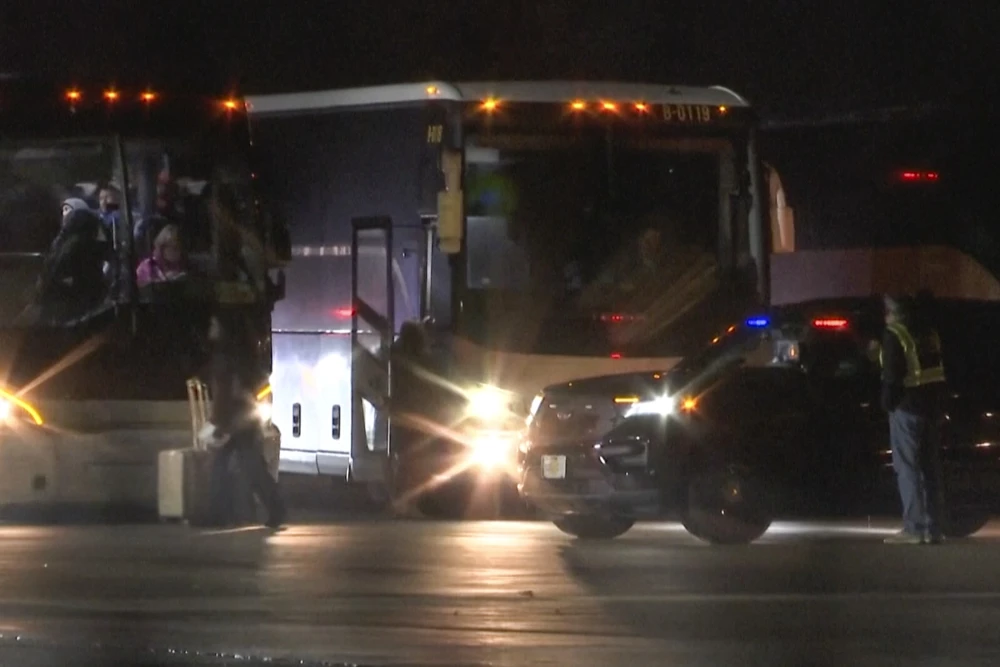
The accusations of hypocrisy directed at Democratic mayors have added another layer of tension to an already complex and sensitive issue.
The use of inflammatory language and the politicization of the situation have only served to exacerbate the existing divisions and polarization.
The accounts from Grundy County Sheriff Ken Briley and Kankakee County Sheriff Mike Downey shed light on the practical challenges faced by local communities in dealing with the aftermath of these actions.
The emergency efforts to prevent individuals from being left in precarious situations without essential resources highlight the real and immediate impact of the decisions made at higher levels of governance.
The lack of adequate support and resources in rural communities underscores the broader systemic issues at play in addressing the needs of migrants and managing the consequences of immigration policies.
The report also brings attention to the plight of the migrants themselves, particularly the 30 individuals from Venezuela who were left at a gas station in Kankakee County.
The description of their dire circumstances, including the lack of basic necessities and the misconception about their destination, serves as a poignant reminder of the human cost of these policy decisions.
It underscores the importance of approaching immigration and border security with compassion, empathy, and a commitment to upholding fundamental human rights.
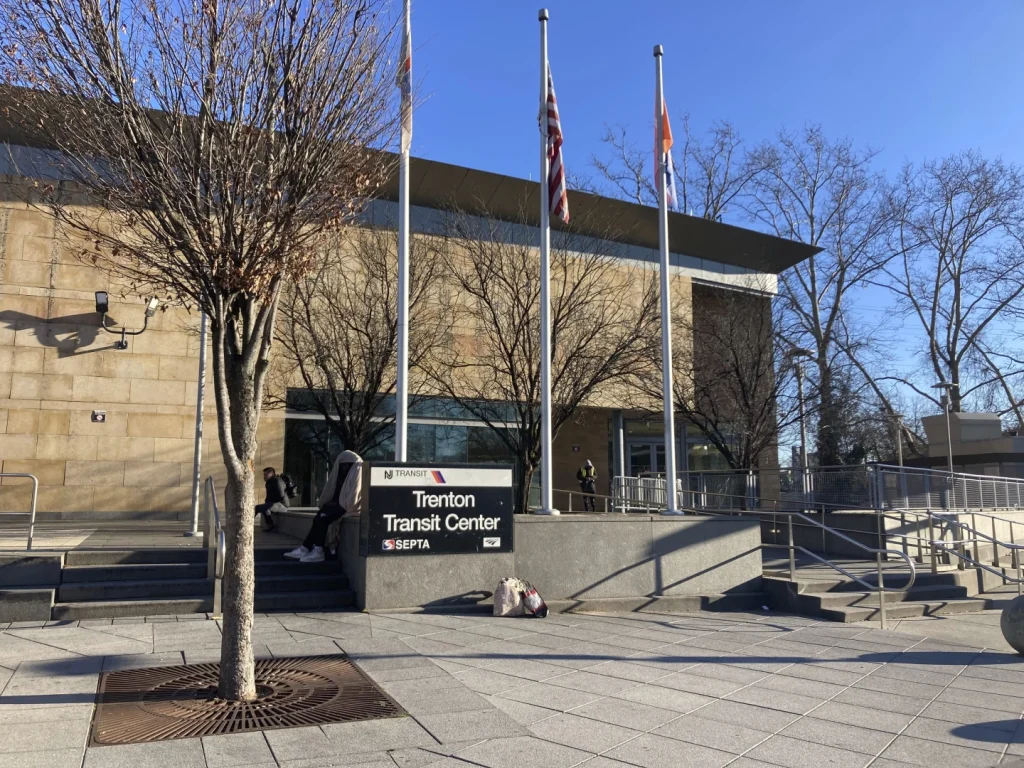
The involvement of various reporters from different locations, including Chicago, Austin, New York, and San Diego, in contributing to the report reflects the widespread impact and significance of the events.
It highlights the national and even international attention drawn to the actions and statements of Governor Abbott, emphasizing the broader implications and reverberations of his decisions.
